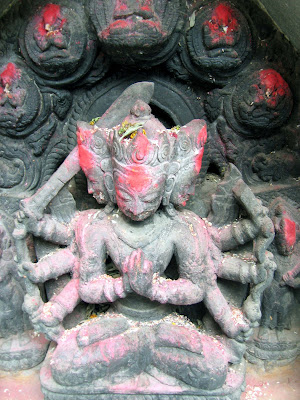A little interlude about my 12 hours in Hong Kong...
I often think of Invisible Cities when I am traveling; especially so here in Hong Kong.
Central Hong Kong is a city of malls—malls that open unto other malls, which lead you to two or three possible doors—all of which lead to still other malls. Malls have large, backlit advertisements for other malls, and when you are spelunking for the subway in wide underground rooms you instead and in fact find a mall with an admission price of one Metro ride. And yet, at times it is difficult for the traveler to know how to arrive at an adjacent mall, the mall you want, as the halls and walkways twist mercilessly to bring you past the most, best shops.
This Hong Kong is a city of not just malls but of status, for the malls lack the means for self-improvement: they lack hardware stores, pharmacies, bookstores of any real depth; they lack cookware, sergers (sp?) and sewing machines, circuit boards and spools of stereo wire. Instead, they repeat the same brand-name luxuries, the Ferragamo shoes and Fendi bags that convey—signal—a knowledge of the vagaries of fashion, knowledge available only to those who can, more of less, afford fashion.
And so, I wonder: is it better—is it more desirable—to live above the Rolls Royce dealer or the Bulgari store in the next mall? Would you rather keep the office of your finance firm above Hugo Boss or Hermes than Clinique? How far does the need to show status—to show luxury, and power—extend? I like to imagine this Hong Kong as a city in which you can give directions by brand name, in which saying that you live above the Admiralty Armani Exchange is normal and precise, like giving a neighborhood or cross-streets.
On the plane to Kathmandu I sit on a roughly upholstered seat next to a Belgian expat named Ann whose partner works—she does not—as an auditor in central Hong Kong. “It's a banker's city,” she says; while the city has a Statue Square very near the central train station, it's only got one statue in it, and that statue is of Sir Thomas Jackson, Chief Manager of the Hongkong and Shanghai Banking Corporation, 1870–1902 (sic). And the suit is de rigeur: in a tropical city, a banker's fashion.
I ask Ann if Hong Kong has any farms. “Maybe a few in the New Territories,” Ann says, “but really you go to the supermarket and all the food comes from New Zealand, Australia, and America. And overland, by truck, from China. Everything is imported.”
After a moment's pause she changes the subject. “Hong Kong is really quite beautiful though.”
























